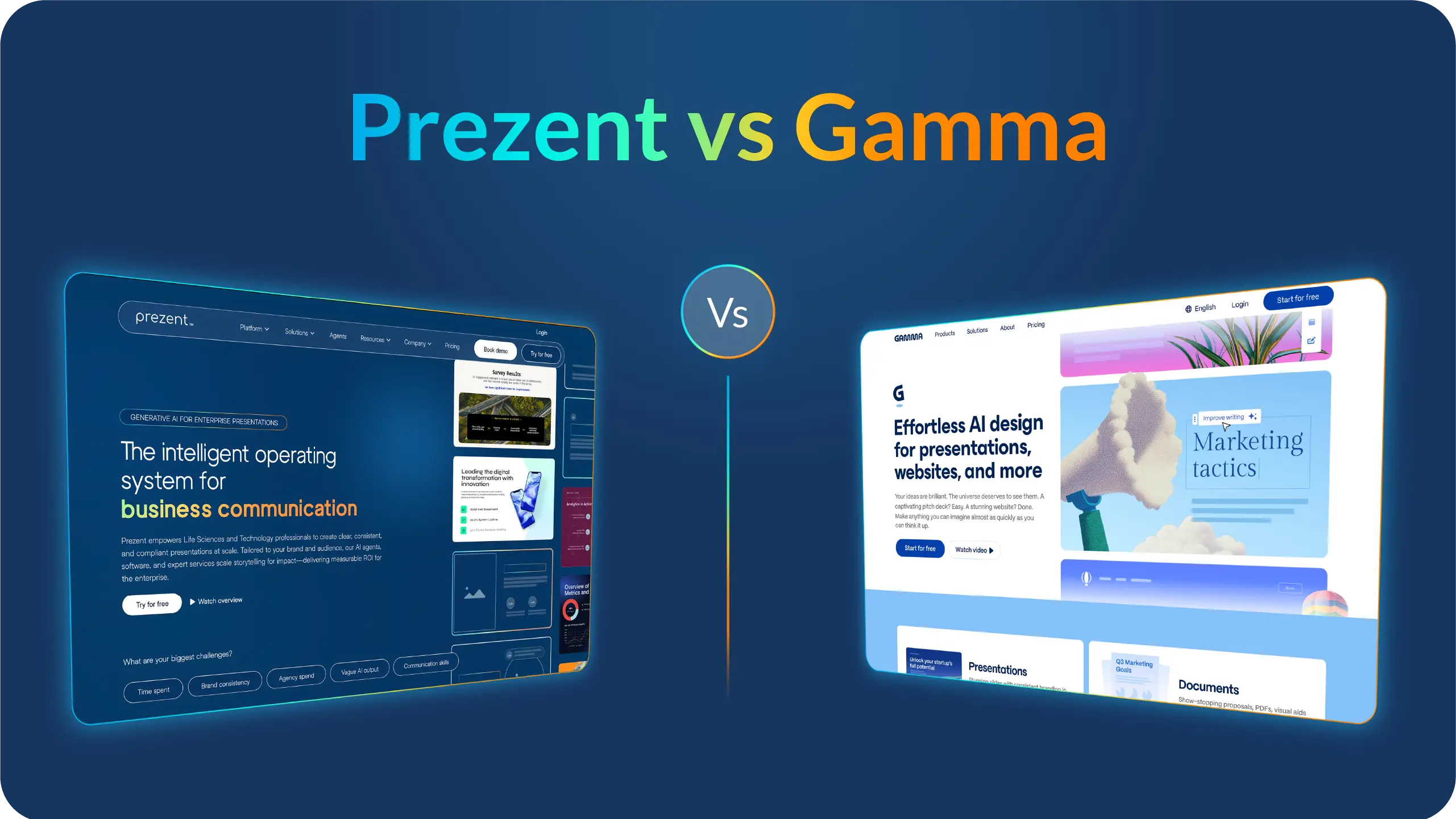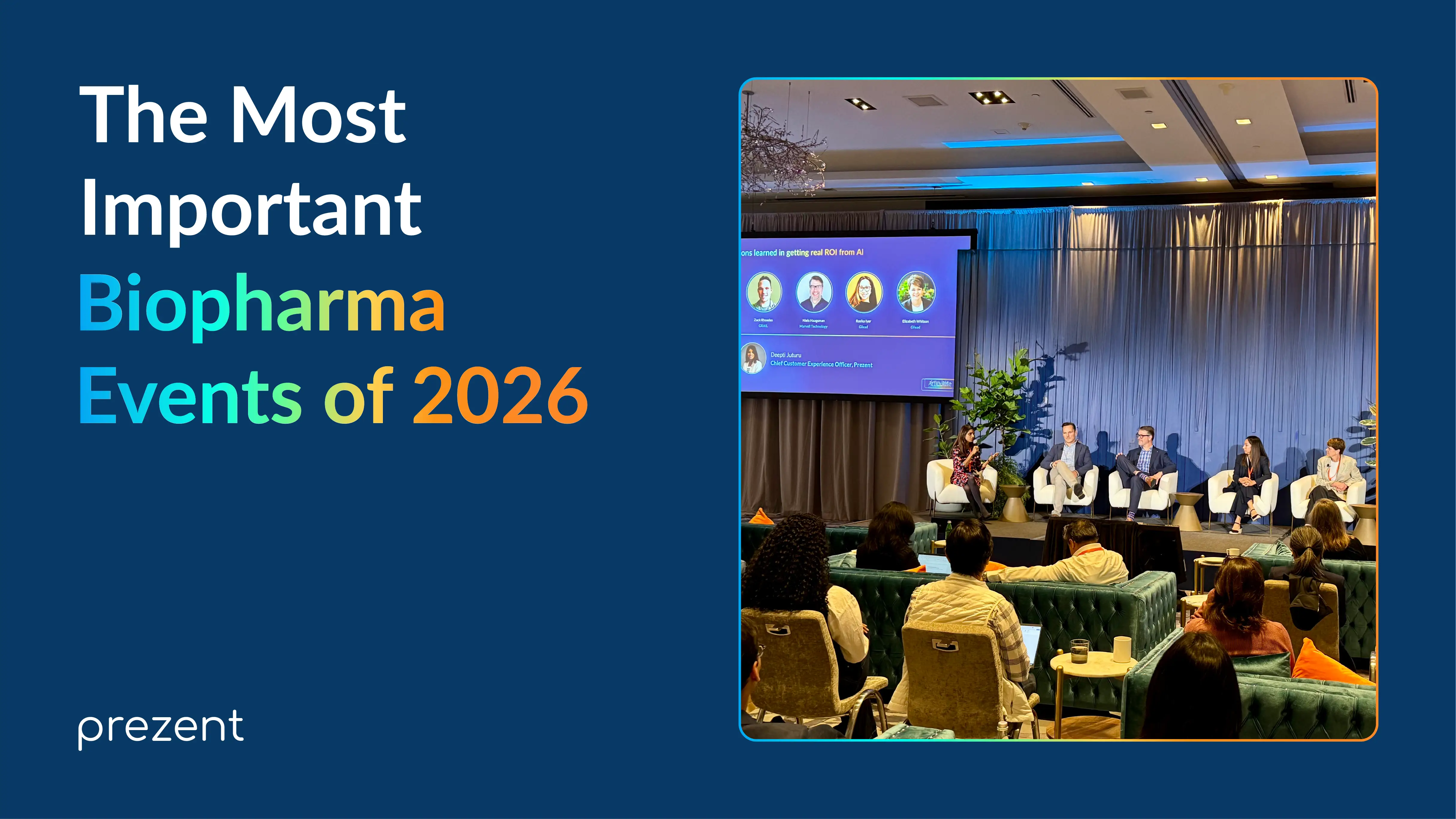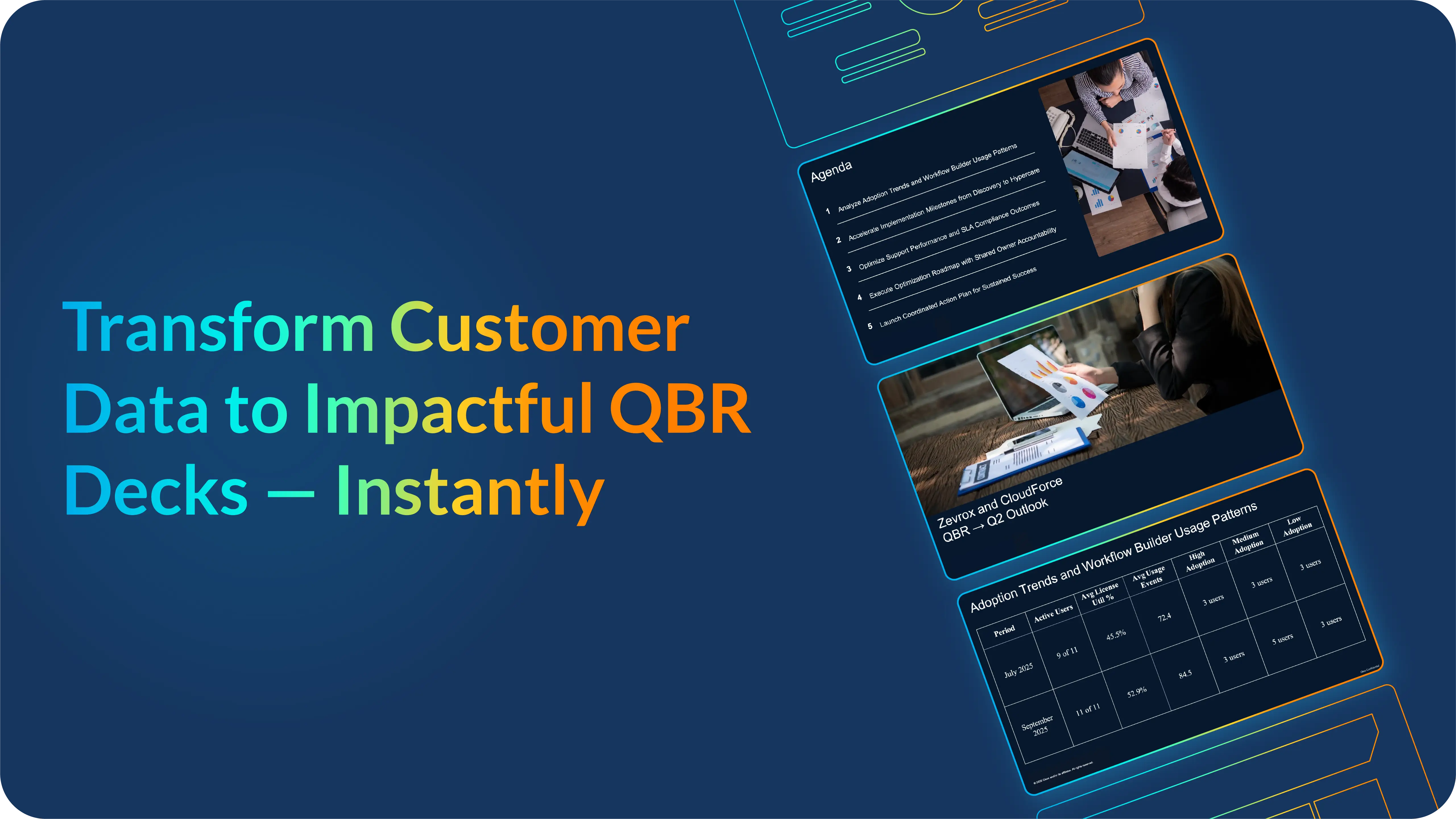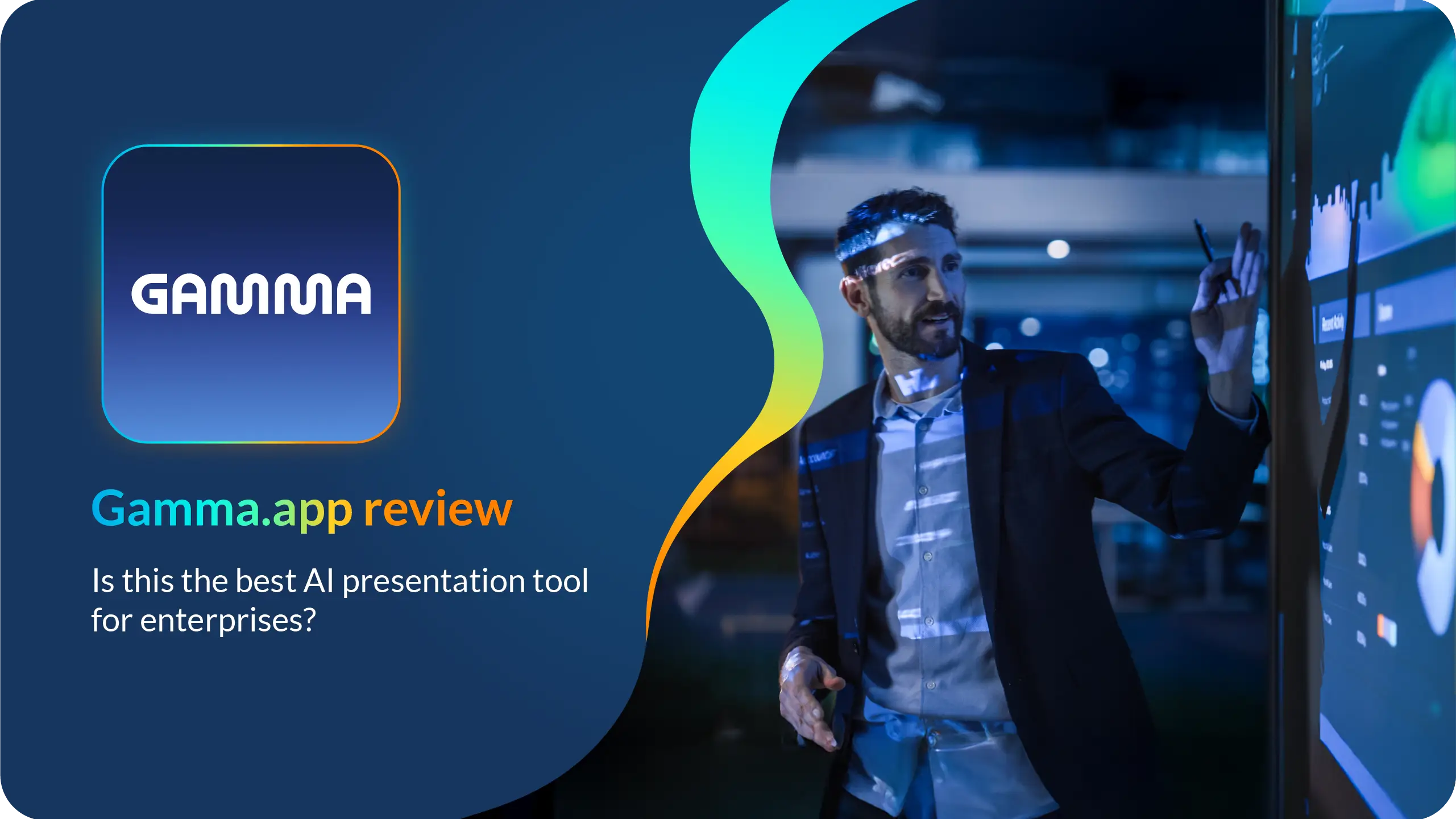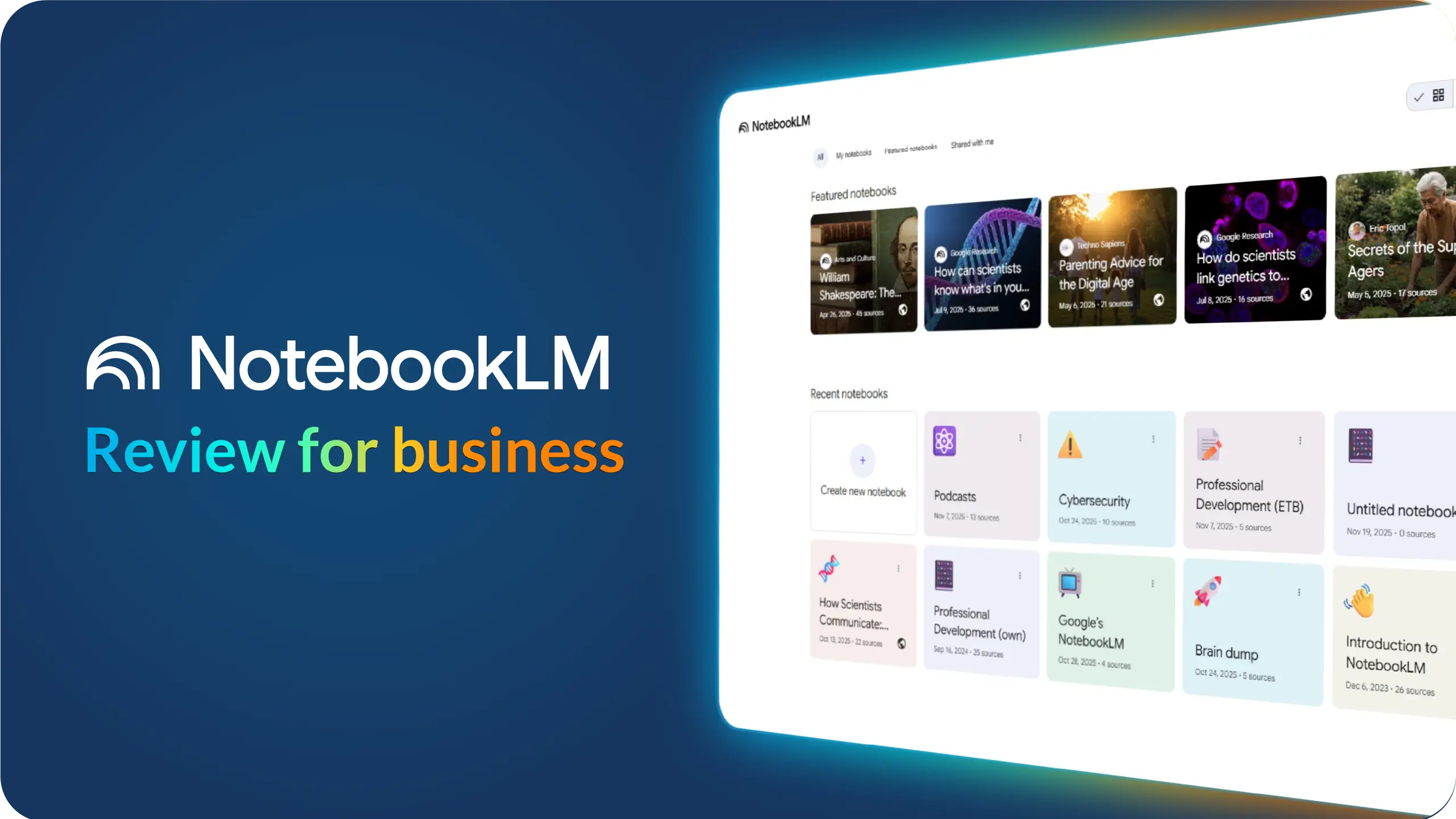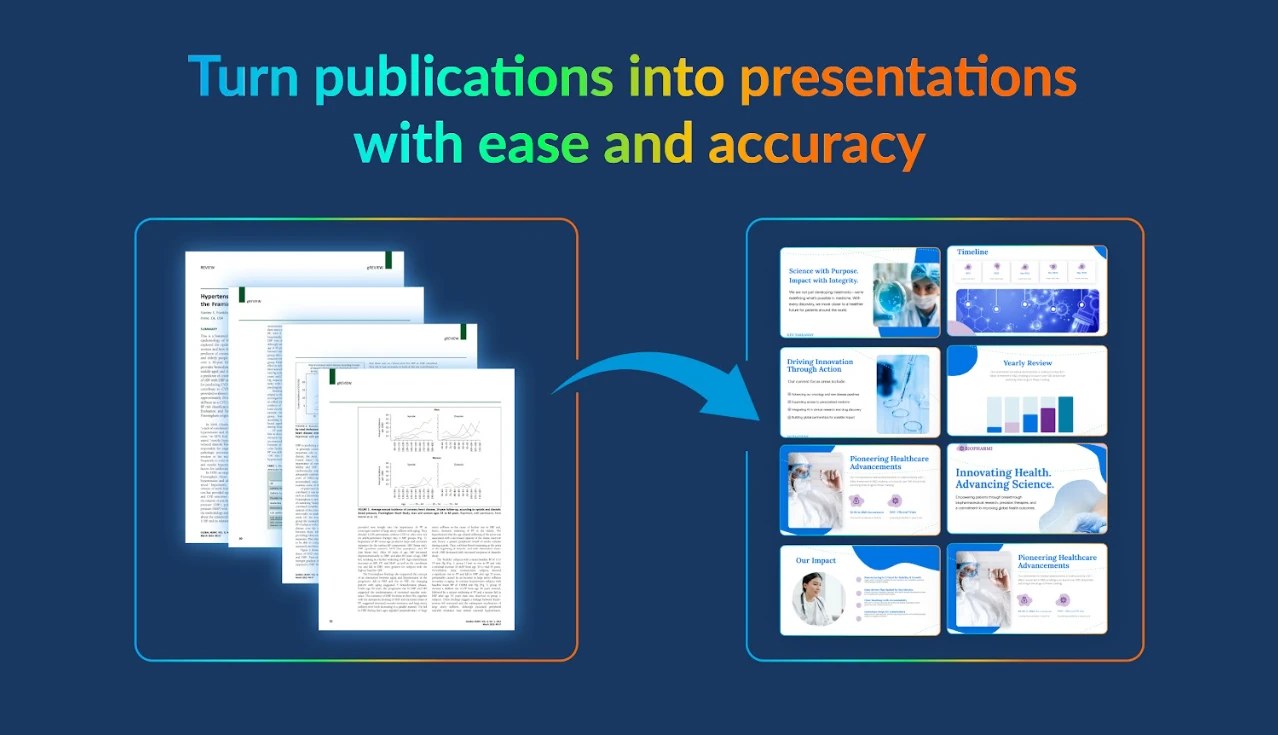The human touch in AI: Lessons on sales, strategy, and innovation from Medtronic’s Drew Logan
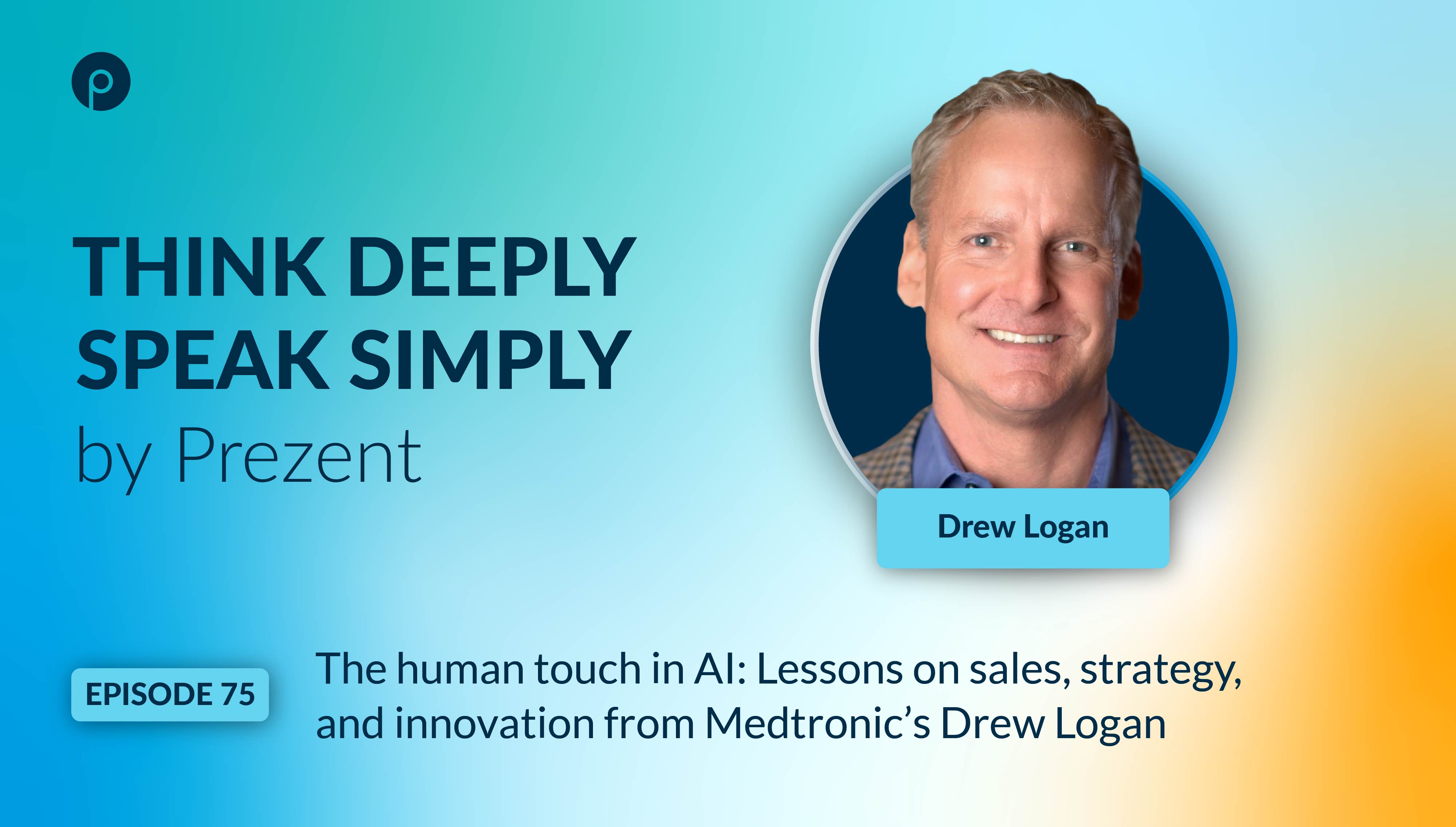
Imagine introducing AI to your sales team, and having them actually excited to use it. Imagine your reps saving hours of admin work, your forecasts becoming sharper, and your tools doing more heavy lifting—all without losing the human connection.
That’s precisely what Drew Logan, commercial leader at Medtronic, is building. In this episode of Think Deeply, Speak Simply, hosted by Prezent CEO Rajat Mishra, Drew shares how AI adoption in sales isn’t about more dashboards. It’s about more visionary leadership.
With decades of experience in the medical device industry and a front-row seat to AI-powered innovation in healthcare, Drew walks us through how Medtronic is turning early-stage AI pilots into real-world impact, from CRM automation to FDA-approved colonoscopy tools.
Key takeaways
- Start with strategy. Don’t chase trends. Align AI tools with your business goals to maximize value.
- Adoption begins with trust. The success of AI initiatives depends less on features and more on clear, human-centered communication.
- Lead with empathy. Address misconceptions directly, show how AI supports (not replaces) people, and demonstrate its benefits in action.
- Product success isn't enough. Even cutting-edge tools like GI Genius face adoption hurdles. Continue to educate, iterate, and simplify the user experience.
- Think beyond the product. Build platforms, invite collaboration, and scale innovation by opening up your ecosystem.
Every AI journey should begin with a clear plan
Drew begins with a caution that sets the tone for the rest of the episode: AI should never be adopted just because it’s popular. It must serve a purpose.
“If you can marry the technology capabilities with what your priorities are, it'll put you in a position to prioritize which AI applications you go after first.”
At Medtronic, this purpose-driven thinking led to the identification of clear use cases. Some of them are lead scoring based on conversion likelihood, forecasting through historical and behavioral data, CRM automation via voice agents, and chatbots to handle mundane tasks.
“We're thinking about how quickly we adopt AI and where we should start. Lead generation and forecasting are our first priorities, along with embedding AI into CRM systems.”
This deliberate approach helps the company avoid what Drew calls “spinning your wheels in something that doesn’t align with your goals or deliver value.”
How do you get teams to trust AI?
Identifying the correct use cases is just the first step. Making them stick is where authentic leadership comes in.
Drew highlights a familiar hurdle: human resistance to change. “AI has been designed to augment humanity, not replace it,” he emphasizes. But fear persists. Misconceptions are common:
- AI will take over jobs.
- It’s too complex for everyday use.
- It should work perfectly from day one.
Drew counters these fears not just with logic, but with empathy. One of Medtronic’s standout pilot projects is a voice-enabled AI agent that enables sales representatives to log information while in the field using simple voice commands.
“The last thing we want to do is have reps come home at night and enter notes into a CRM. If we can let them do that in real time from their car, we save them time and get cleaner data.”
However, Drew knows that even the most innovative tools fail without buy-in. So, he takes communication seriously.
“At our annual sales kickoff, we don’t just talk about numbers. We explain how AI fits into our strategy and how it makes their lives easier. We show demos. We answer doubts. That’s how you get people excited.”
AI doesn’t just need adoption. It needs advocates, and that starts with leaders who listen.
The GI Genius: From a life-saving tool to an open innovation platform
Medtronic isn’t just using AI internally—they’re building it for the world. One of their boldest moves is GI Genius, the first FDA-approved AI system for detecting colon polyps during colonoscopies.
“As the physician performs the procedure, GI Genius puts a green box around any area of concern. But the physician remains in control. The AI simply says, ‘Hey, look here.’”
The product tackles a significant healthcare challenge: missed polyps can lead to cancer. GI Genius enhances detection accuracy. It can particularly be super helpful during the later stages of a long workday when physicians are fatigued.
And yet, adoption is slow. Only 6% of the market has implemented it.
Why? Because the same human objections apply:
- It’s too new.
- It costs money.
- I’m already good at this.
The lesson here? AI adoption challenges aren’t unique to sales. They also play out in operating rooms.
So what do you do when your product works, but adoption lags? You open the doors wider.
Drew explains how Medtronic is evolving GI Genius from a standalone tool into a full-fledged AI platform. “We’re going to be the iPhone of the GI lab,” he says.
That means inviting third-party developers to build their algorithms into the system. Medtronic has already received over 70 submissions and is actively working with the top 5 to 10.
With a sandbox powered by NVIDIA and Cosmo, innovators can now test their AI in a virtual GI lab. This openness transforms Medtronic from a product manufacturer into a leader in the healthcare ecosystem.
What Drew Logan wants every communicator to know
Before signing off, Drew shares insights that reflect his people-first approach to leadership:
- One word for communication: Listening.
- How AI is changing communication: It allows more efficient prep and enables more creativity in tools like presentations.
- Communication myth to unlearn: That it’s all about talking. Great communicators often speak less but say more.
- Advice for big presentations: Practice, even if it feels painful. It works.
- Lesson he wishes he knew earlier: Treat every difficult conversation as a problem to solve. Listen actively. Don’t take things personally.
Final thought: It’s not just AI. It’s leadership.
Whether it’s voice agents for sales reps or real-time tools for physicians, Drew Logan’s approach is consistent: combine innovative technology with more visionary leadership.
“The intent here is not to replace you. It’s to make us better.”
He reminds us that innovation isn’t just about building what’s new. It’s about building what’s practical, human-centered, and trusted.
If you're exploring how AI can transform your sales strategy or product offering, this conversation is your blueprint. Ultimately, the future of AI belongs to leaders who think deeply and communicate effectively.
Missed the episode? Our podcasts are easily accessible on our YouTube channel. You can also listen on the go via your favorite platforms, including Spotify and Apple Podcasts.
New episodes of "Think Deeply, Speak Simply" are released biweekly, exploring the intersection of communication, leadership, and innovation.
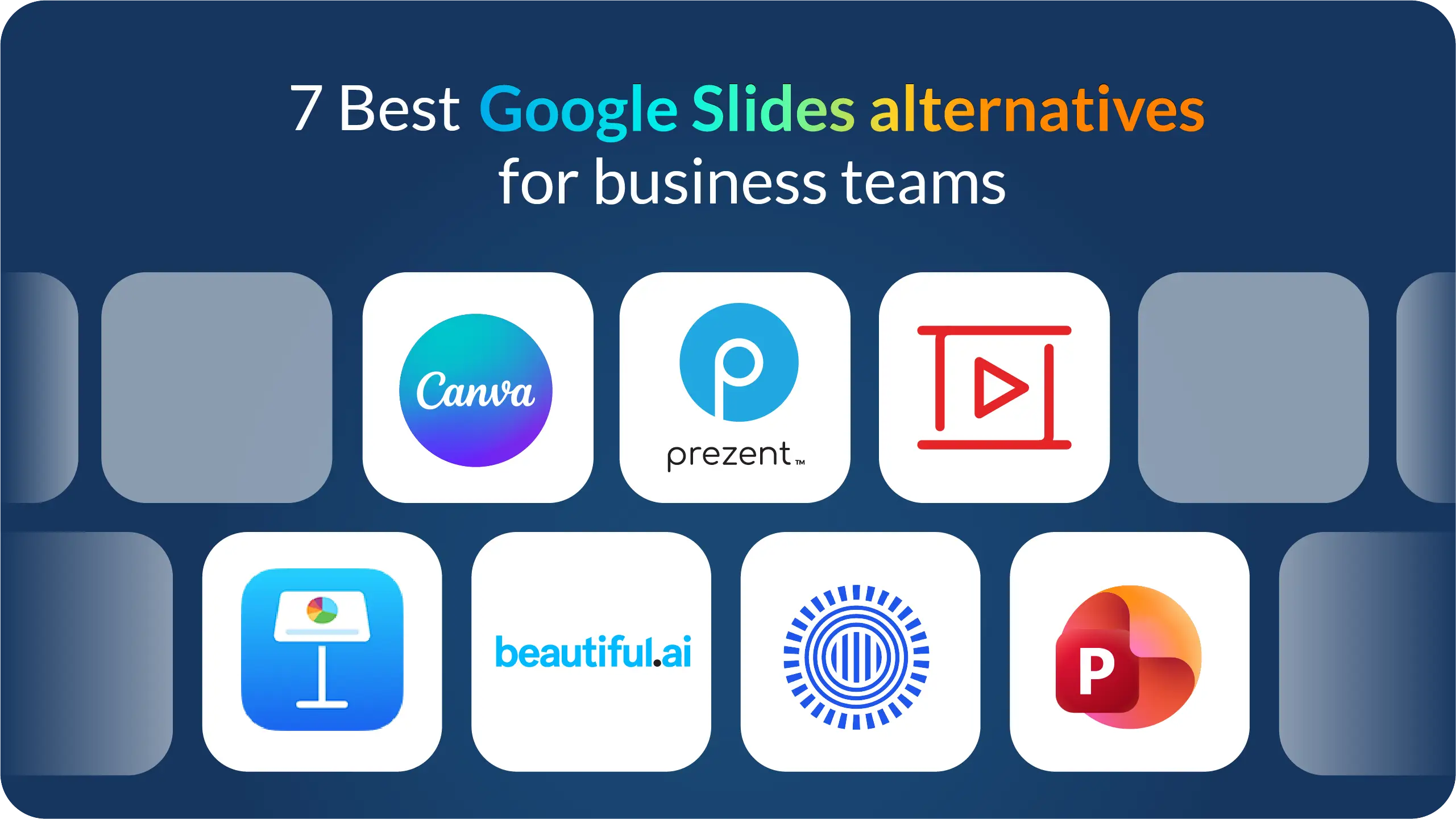
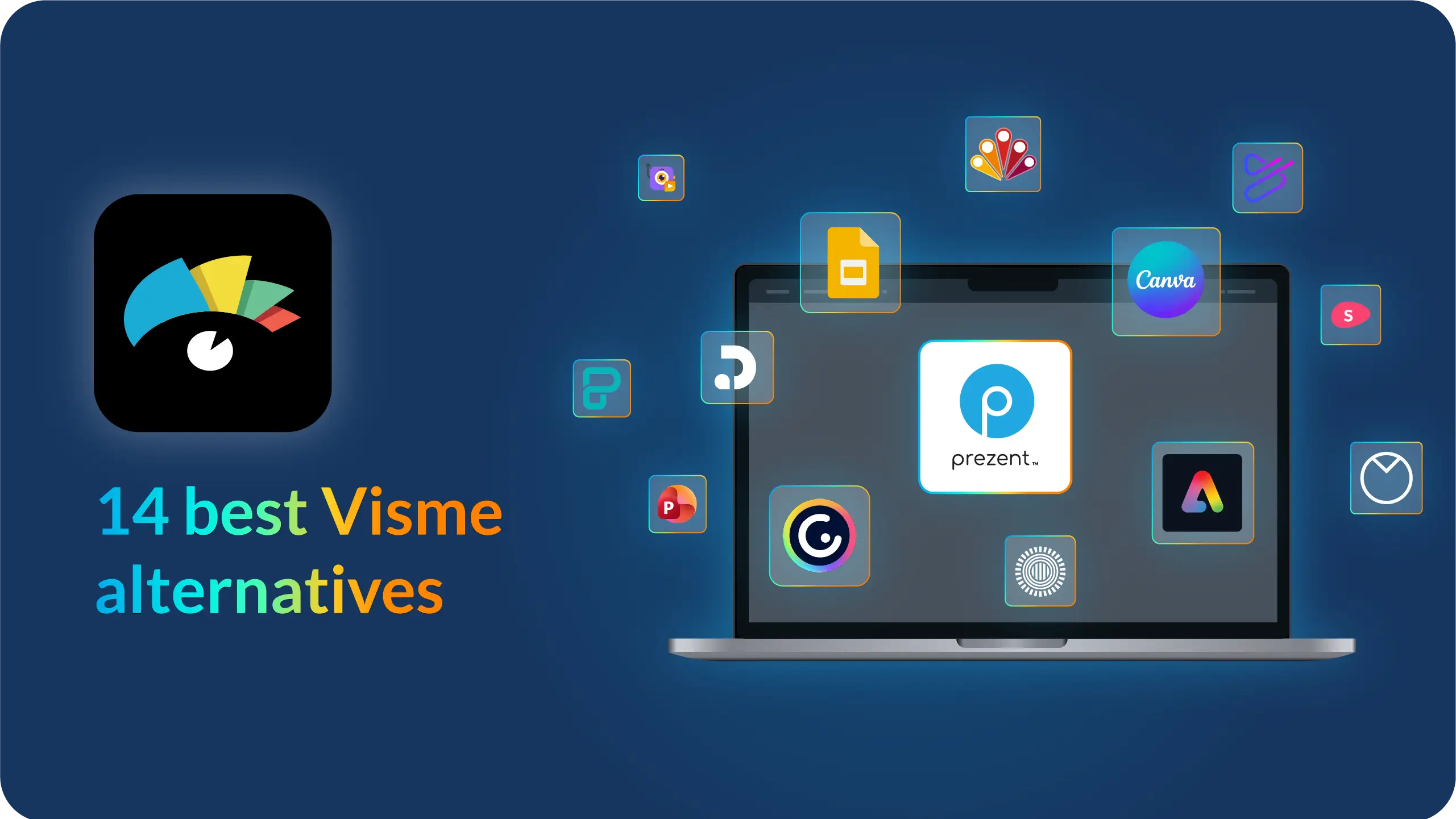
.png)
